8 Water Softener Alternatives for a Better Feel & Lower Cost
Author: Rick Worst | Editor: Omar Alonso
Review & Research: Jen Worst & Chris Miller
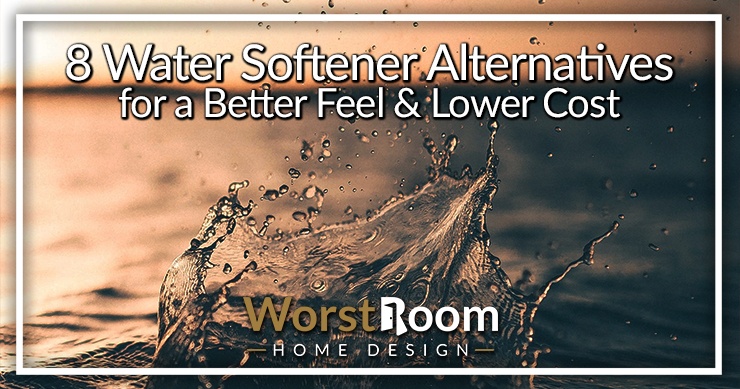
Hard water is a common problem in several homes and water softener alternatives seek to cure that in various ways that offer premium results and often lower costs.
The high mineral content in the hard water causes the build up of unsightly limescale around your taps and faucets, mineral deposits on your dishes, stains on your clothes, and makes the drinking water taste unpleasant.
The limescale deposits are quite difficult to remove and lead to increased cost, in terms of the use of detergents and soaps. The deposits also affect the performance of your domestic appliances such as dishwashers, washing machines, etc.
Water softeners are commonly used to get rid of hard water problems by removing the mineral content from the hard water.
And this is less expensive than the significant cost of paying huge repair and plumbing bills and also the time and effort if you let the problem of hard water go unchecked.
8 Water Softener Alternatives
Most of the water softeners available on the market are salt based, which make use of the process of ion exchange where magnesium and sodium ions in the water are exchanged with sodium ions.
However, these salt-based softeners need regular replenishment and maintenance, which can be expensive. In this article, we’ll discuss some of the best water softener alternatives.
Reverse Osmosis (RO)
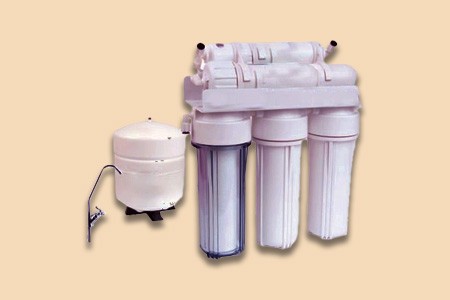
An RO system is a salt-free system that filters the contaminants, water-hardening molecules, metals and even bacteria from the water.
The reverse osmosis system softens the water by making use of pressure to force the water via a semipermeable membrane. RO systems can remove up to around 99% of the solids and impurities that are dissolved in water, making it very clean and pure.
Some RO systems make use of more than one filter to filter the water, which means that the water you get will be extremely clean. RO-treated water tastes significantly better and has a better appearance and odor.
And, since these systems don’t use electricity, you don’t have to worry about the cost of running the system or increased electricity bills. This is why we say alternatives to water softeners can save money and be had at lower costs.
Maintaining RO systems is very simple and you simply need to replace the filter 1-2 times in a year and the membrane needs replacement every 2-3 years, depending on the quality of water in the area you live in.
However, there are some drawbacks to RO systems such as this is quite a slow process and takes a while to work. Once you use up all the filtered water in the holding tank, you need to wait for a while until the water fills up again.
Another major drawback of using an RO system is that the process of reverse osmosis de-mineralizes or strips all the minerals from the water, which may lead to several problems in the long run.
The RO system is complex and delicate and the filters need to be replaced regularly, which can be quite expensive. But you may save that money on maintenance with your types of water heaters, plumbing, faucets, and other types of gadgets that run on water.
If the water in your area has too much chlorine, it can damage the RO system, which may need repairing or replacing the parts. But still, this is one of the best water softener options, in my opinion.
Also, if the RO system isn't cleaned and maintained properly, the tiny holes in the membrane will get clogged and the system won't work properly. Water softener alternatives can solve one problem and introduce a new one.
You must clean and sterilize the RO system regularly to prevent the growth of mold or mildew, which can be harmful to your health.
Template Assisted Crystallization (TAC)
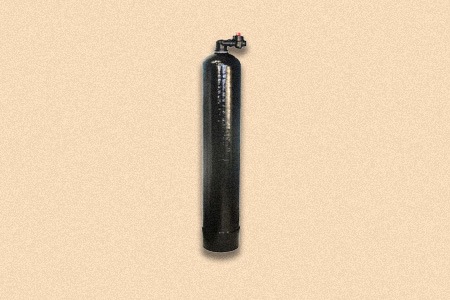
A TAC system doesn't need salt or electricity to work and also doesn’t require any maintenance. Once you install the unit and it is operating properly it doesn’t require any cleaning or adding of chemicals to work properly.
The TAC system makes use of ceramic-polymer beads to soften the water, where the resin transforms any minerals present in the water into crystals instead of ions. Instead of attaching themselves to the appliances, pipes, etc., these crystals are washed away.
Also, the TAC process doesn’t remove calcium and magnesium from the water, which means that the water still retains the beneficial elements.
TAC is an environmentally-friendly option and the system doesn’t have any electronic valves, which are quite expensive to replace if they break or get damaged.
There is no backwashing or brine discharge, which means that you don’t need to connect the system to a drain. Also, this will help to save water.
The tank is quite long lasting, which reduces your expenses on treating water and since there is no salt added to the water, the quality and taste aren’t affected.
However, it isn't really known how effective the TAC systems are in the long run. While the medium is chlorine tolerant to an extent, the unit will last longer if you remove any chlorine by using a carbon filter before passing through the medium.
So, if your only problem with the water is limescale, then TAC is an eco-friendlier, healthier, salt-free and affordable option.
Electromagnetic Water Treatment
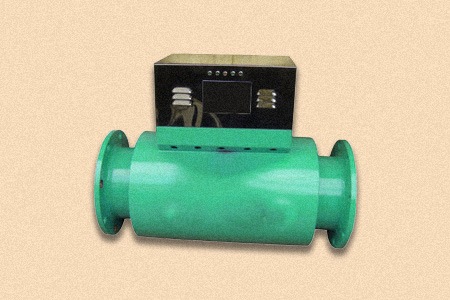
An electromagnetic water treatment makes use of magnets that create magnetic fields causing the calcium and magnesium molecules in the water to hydrate and weaken so that they don't adhere to the surfaces and this helps to reduce limescale deposits. They're meant to reduce and remove hard water scaling.
Electromagnetic water treatment systems are beneficial as they don’t leave calcium molecules in the water and also don’t use chemicals, while being environmentally friendly as they don’t require backwashing or produce any wastewater.
So, if you’re looking for a cost-effective water softener, then electromagnetic water treatment systems may be a good option. While electromagnetic systems work on electricity, they use very little electricity.
However, these water softener alternatives systems have a few limitations such as any electrical appliances or devices around can be affected by the electromagnetic charge from the system.
Also, for the water to be softened, it must be in contact with the magnetic area and if it is removed for over 48 hours then the water will revert to the hard state, which means that the treated water can’t be stored for long periods of time.
Electrically Induced Precipitation (EIP)
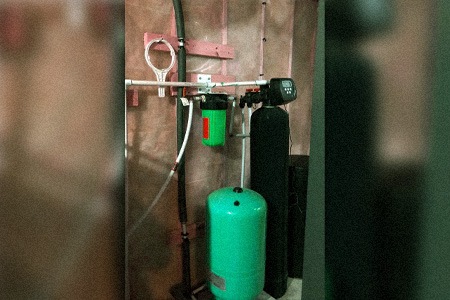
An EIP system converts the molecules that make water hard into soft scales on an electrode instead of forming hard scales on your most used types of kitchen faucets, pipes, etc.
You can clean the electrode occasionally. It is found that EIP systems can help to reduce the limescale build-up by around 50%.
These systems are also quite expensive compared to template-assisted crystallization systems and because of the need for backwashing, the water consumption is also greater.
Nevertheless, because EIP systems are easy to install and maintain, they are a good alternative to water softeners.
Capacitive Deionization
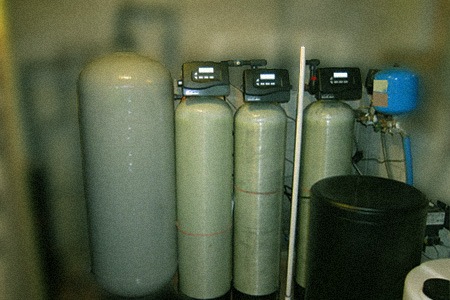
Also known as electrically regenerated ion exchange, the capacitive deionization system makes use of electrodes to split the molecules into positive and negative ions, removes them and reduces the hardness of the water.
This method is fairly environmentally friendly and affordable; however, it needs periodic backwashing to eliminate the extracted materials. This method is used even as pool chlorine alternatives as a way to stay away from chemical treatments.
Also, it isn't very energy efficient and the initial setup costs are very high. Used mainly in a commercial setting, although the capacitive deionization system produces pure water, the water is de-mineralized, which doesn't offer any benefits to you but does to your plumbing.
Salt-Free Water Conditioner
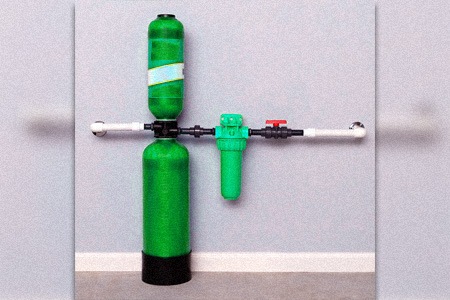
The goal of the salt-free water conditioner is to make it harder for limescale to build up and to make it easier to remove once it does. It doesn't filter out or remove the offending minerals that cause hard water.
What it does do is change the chemical makeup of these minerals. It attacks calcium and magnesium, for instance, using an anti-scaling resin that interacts with the water to achieve this goal.
Many choose to pair the salt-free water conditioner with a pre-carbon filter. The purpose of this is to keep the water smelling and tasting fresh, reducing any associated chlorine flavors.
Extend the lifetime of your plumbing, clean faster with fewer supplies, and enjoy better feeling and tasting water with this and other water softener alternatives.
Electrochemical Water Treatment
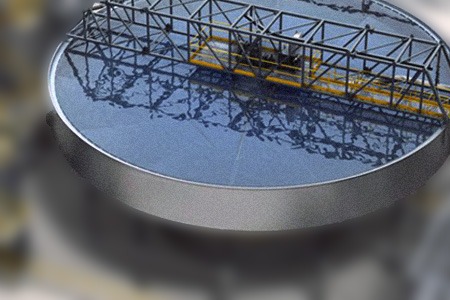
If you want to soften water and remove the hardness, then you can use the process of electrochemical water treatment.
The process involves fitting electrodes and passing an electric current through the water, which helps to remove the salts and also pathogens, thereby disinfecting the water.
The electric current produces ozone and other elements that help to clean the water. Moreover, these cleaners are organic since they come from dissolved or liquid salts.
Electrochemical water treatment is very safe as it doesn’t use any chemicals and is an effective method to get soft, potable water.
And, if you want the water to be very pure and clean then opt for electrodes having a coating of platinum or platinum oxide.
Electronic Descaler
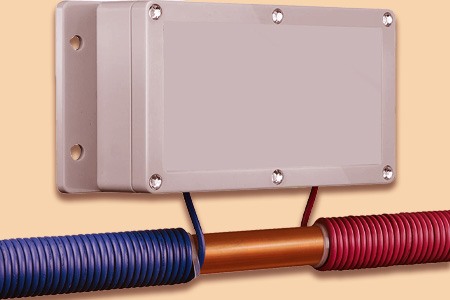
The electronic descaler makes use of nanotechnology to soften the water instead of brine. The unit alters the chemical structure of the dissolved salts, making them inactive.
The electronic descaler helps to reduce the limescale deposits from the plumbing. However, unlike the other water softening methods, the electronic descaler works only on running water.
So, if you want to treat the water in a boiler or reservoir, then you may have to consider some other alternative to water softener.
Also, electronic descaling isn't effective on the water having a very high hardness level and will work best on the water where the water has a maximum hardness of 75 grains a gallon.
Water Softener Alternatives to Suit Your Needs
So, as you can see there is a wide range of alternatives for water softeners that are available, where some options are more effective compared to others.
However, you must keep in mind that if you want the water to be truly soft, then you will need to use a regular salt-based water softener.
The good thing is that most of the salt-free water softener alternatives are eco-friendly, don't require a lot of maintenance and since they don't add a lot of salt to the environment or wastewater, they are environment-friendly too.



